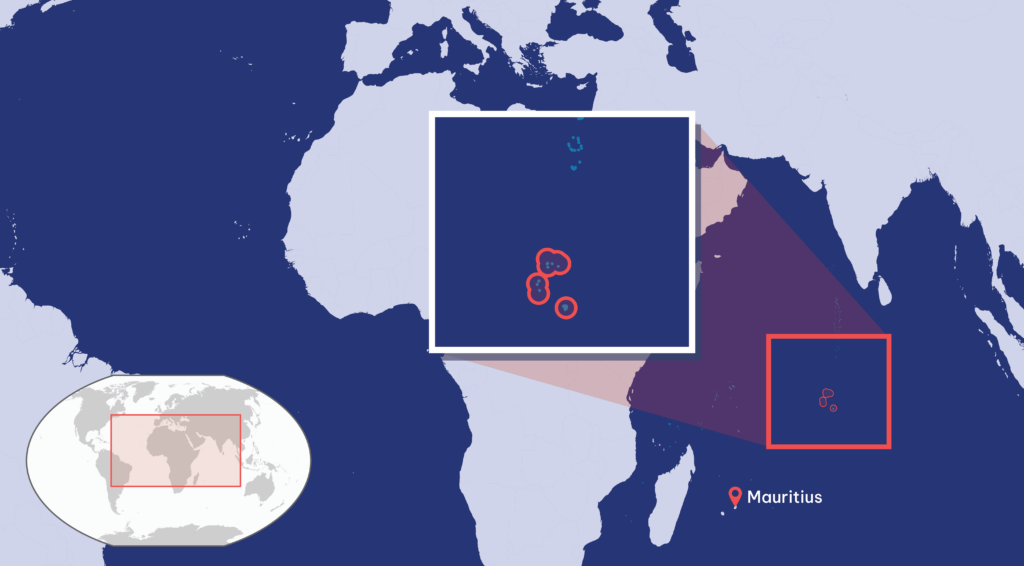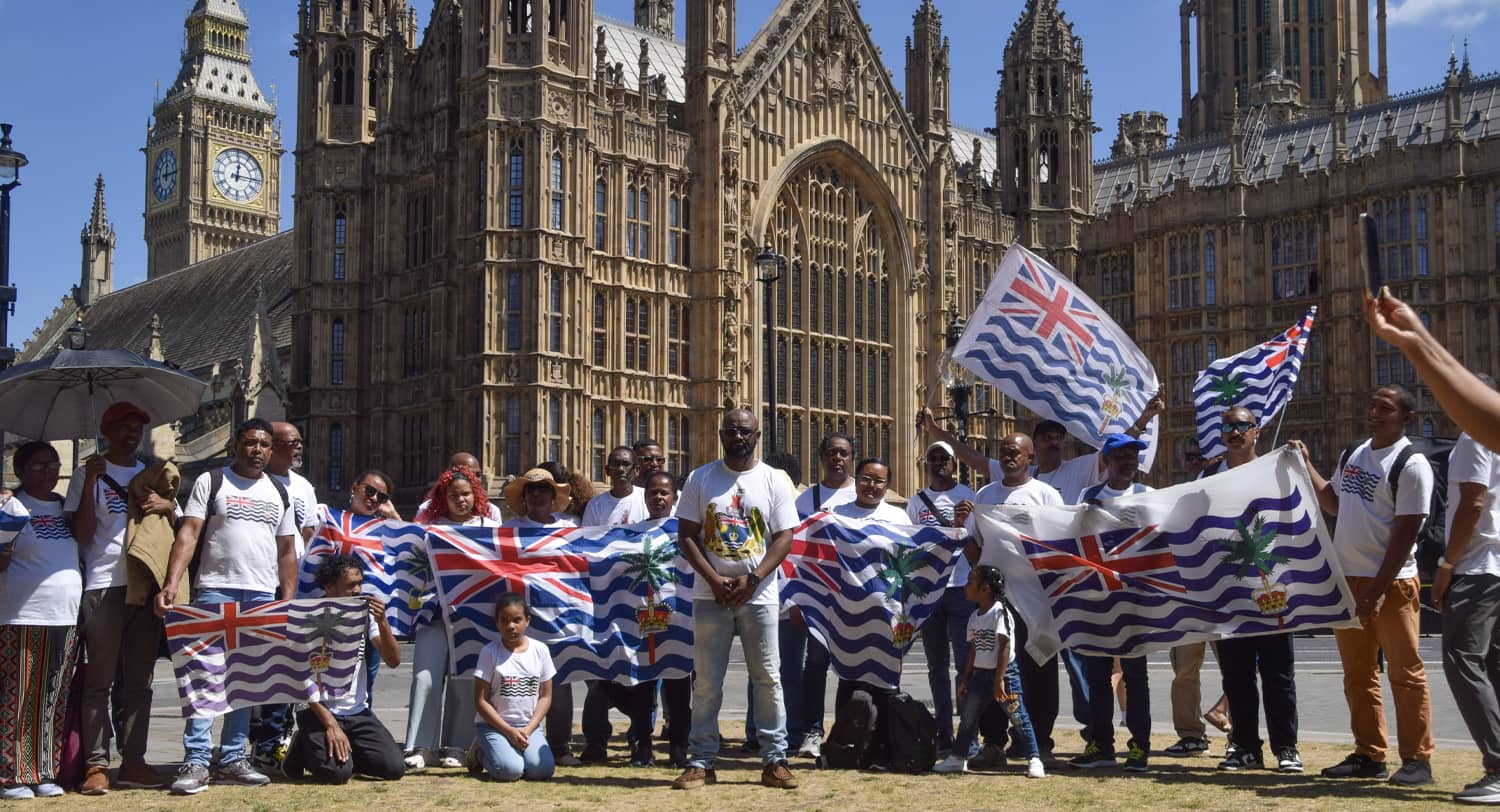On May 22, the UK government of Labour’s Keir Starmer signed a treaty with the island nation of Mauritius, a former British colony in the Indian Ocean, to cede sovereignty over the Chagos Islands, a seven-atoll archipelago that includes the Diego Garcia military base. Though the deal contains protections for this base, it also raises questions about Labour’s ability to preserve Western strategic interests.
Background on Diego Garcia and the Chagos Islands
Historically, the Chagos Islands had no connection to Mauritius, which lies 1,361 miles away. Their connection is a legacy of recent British colonialism: the British Empire governed both as one jurisdiction. The Chagos Islands have no indigenous population. The British imported contract plantation laborers from elsewhere as civilian residents.The plantations had become unprofitable by the 1960s and its civilian employees were compelled by the British to leave by 1973.
During World War II, Britain established a small naval base in the Chagos Islands to monitor Axis submarine and surface raider sorties. The base closed in 1946 and Britain granted usage rights to the US military for Cold War strategic purposes.
When Mauritius gained independence in 1965, the UK paid it three million pounds sterling to leave out the Chagos Islands, with no recorded objection from Mauritius’s government at that time. A year later, the British granted the US a 50-year lease for base rights on the largest island, Diego Garcia, in exchange for a $14 million discount on submarine-launched Polaris missiles. Due to expire in 2016, the lease carried a special provision for automatic renewal for an additional twenty years – through 2036 – so that US base rights remain intact for at least another eleven years.
Diego Garcia is remote enough from the nearest coastlines in the Indian Ocean basin to be safe from attack, but close enough to support military operations in an arc extending from South Africa across the Middle East and Indian subcontinent to Southeast Asia. Over time, facing rising security challenges and strategic setbacks that deprived it of forward positions in mainland Asia, the US expanded Diego Garcia to a massive naval and air base, including port facilities capable of docking the largest American warships, huge runways to receive the most powerful aircraft, accommodations for thousands of personnel and supply facilities.
Diego Garcia survived the wave of post-Cold War base closures in the Pacific region. It supported operations during the Gulf War, the Iraq War, the war in Afghanistan, and the recent military actions in the Red Sea. If conflict with Iran renews, the base will certainly support operations there as well. Diego Garcia is also well situated to disrupt Chinese maritime routes to Africa, where Beijing has carried out an ambitious policy to support development in exchange for base rights and access to raw materials. Mauritius, which has had a free trade agreement with China since 2019, is no exception. Commerce between the two countries has increased tenfold since 2000 and nearly doubled in just the last three years, with China enjoying a massive trade surplus with the island nation.
Diego Garcia today functions with some 400 active military personnel – almost all Americans – and about 2,000 civilian contractors. Access to the entire territory is restricted, with no commercial activity or tourism permitted, and with limits on spousal deployments to Diego Garcia and marine recreation.

The Starmer Government Decision
“Another surrender and a handover in all but name. This government consistently undermines Britain, and it is absolutely unforgivable. The Falklands will be next,” posted former Conservative British Home Secretary Suella Braverman recently, after it was reported that the Starmer government intends to cede Gibraltar’s border controls to Spanish and European Union officials. That agreement has not been finalized, and government spokesmen insist that Gibraltar will remain British. On the other hand, the Chagos transfer of sovereignty is expected to become official later this year.
The Chagos deal will allow Britain to lease the Diego Garcia base territory for 99 years at an average annual cost of about 101 million pounds sterling. The agreement also creates an exclusion zone that prohibits any outside military presence within a 24-mile radius of the base, bans foreign military stations in the outer Chagos Islands, and permits the US and the UK to veto any Mauritian initiatives that could affect base operations. The US will continue to bear the costs of Diego Garcia’s operations, but there are no provisions to enforce the terms restricting foreign military access and Mauritius maintains no standing armed forces.
Throughout the process, Starmer has proclaimed Diego Garcia “absolutely vital” and spun the sovereignty transfer as the only way to preserve the base in the face of Mauritian opposition. Mauritius has claimed since the early 1980s that the Chagos Islands carve-out in 1965 was illegal under international law. In 1984 Mauritius also declared an exclusive economic zone that controversially included the Chagos Islands. Led by Margaret Thatcher, who launched a war to preserve British control over the Falkland Islands at around the same time, Britain made shows of strength over the Chagos but also offered an empty gesture, suggesting that it might hand them over to Mauritius if they became militarily unnecessary. In addition, displaced Chagos Island residents and their descendants have won multiple British legal rulings supporting their right to return to the islands or receive financial compensation for their removal.
In February 2019, the International Court of Justice, having been requested to issue an advisory opinion by the UN General Assembly, advised that “the United Kingdom is under an obligation to bring to an end its administration of the Chagos Archipelago as rapidly as possible.” In 2021, the International Tribunal for the Law of the Sea and the Universal Postal Union also issued administrative rulings stating that Britain has no sovereignty over the islands.
None of these judgments is legally binding. Mauritius has wisely limited assertions of sovereignty to a few symbolic gestures like planting a Mauritian flag on one of the uninhabited outer Chagos islands in 2022.
Once Labour was back in power in London, the UK folded, at a time when Diego Garcia remains of great importance. Farther afield, strategic planners in Beijing – and perhaps in Madrid and Buenos Aires (where nearby British outposts are also vulnerable) – have undoubtedly taken note.



